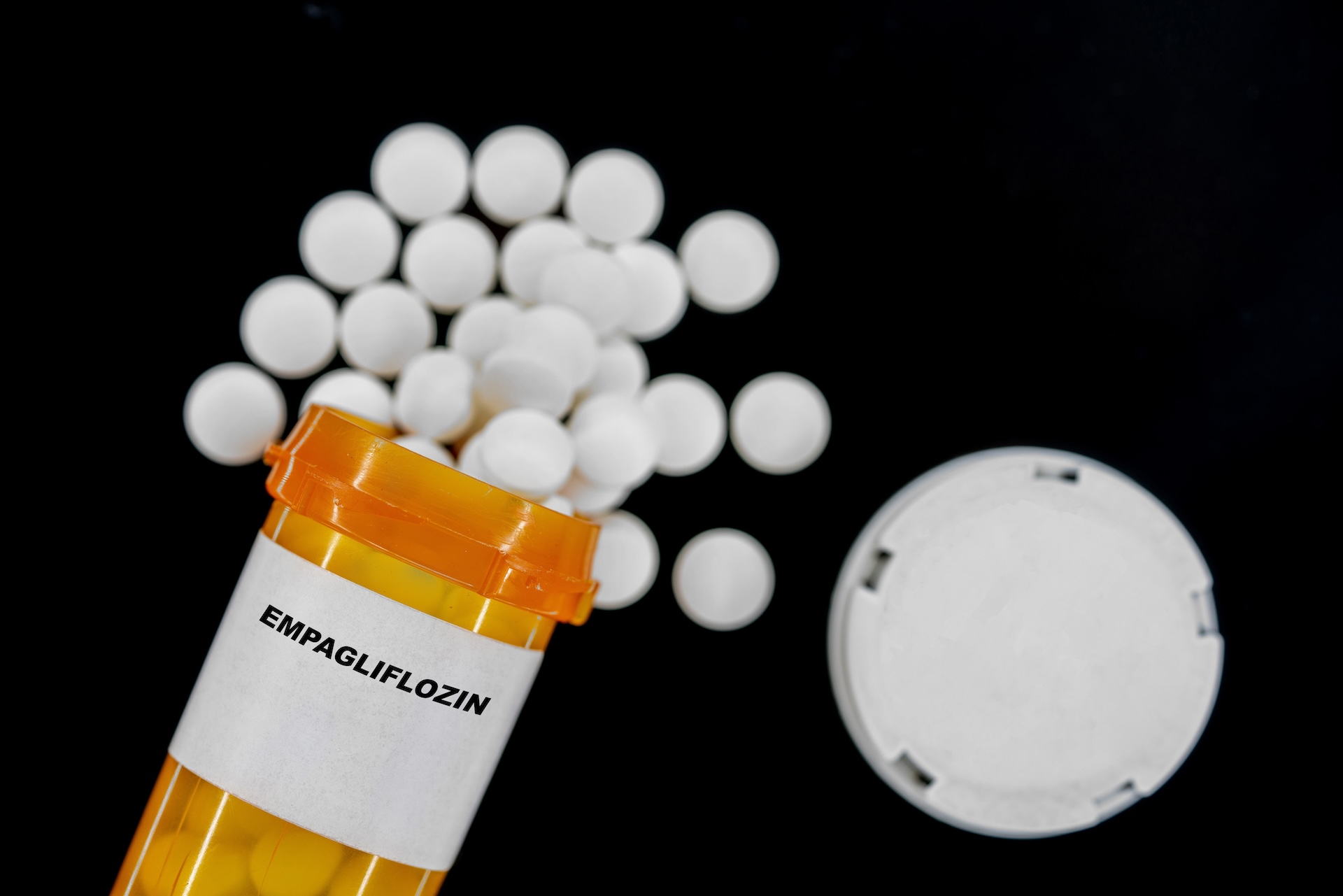
14 Jardiance Side Effects & What to Do About Them

If you have diabetes, your doctor may have suggested Jardiance to you.
The brand name for empagliflozin, Jardiance is an oral daily medication used to manage blood sugar and prevent severe heart failure or chronic kidney disease in adults and children over the age of 10 with type 2 diabetes. It is part of a class of drugs called sodium-glucose co-transporter 2 (SGLT2) inhibitors that work by causing the kidneys to release glucose into the urine so the body doesn’t reabsorb the glucose back into the blood.
Here’s what you need to know about going on Jardiance, what side effects to expect, and how to manage them.
Side effects of Jardiance
Jardiance side effects can be mild to severe, though severe side effects are rare.
Common and mild side effects of Jardiance can include:
- Frequent urination, particularly at night
- Urinary tract infections (UTIs)
- Genital yeast infections
- Increased thirst
- Increased cholesterol
- Weight loss
- Nausea
- Joint pain
- Upper respiratory tract infections
The worst side effects of Jardiance — in other words, the most serious, but less common side effects — include:
- Low blood glucose (hypoglycemia), which exhibits itself with these signs:some text
- Shakiness
- Dizziness
- Sweating
- Dehydration and low blood pressure (to the point of passing out)
- Ketoacidosis (too much acid in the bloodstream)
- Serious UTIs and kidney infections
- Serious genital infections
Contact your healthcare provider if you experience any of the above..
Managing empagliflozin side effects
Here are some tips for preventing and managing Jardiance side effects:
- Stay hydrated (check with your healthcare team about how much fluid you should drink if you have heart failure) and limit how much alcohol you drink.
- Clean your genital area regularly to prevent yeast infections and UTIs.
- If you develop an upper respiratory tract infection, practice self-care by getting plenty of rest, staying hydrated and asking your healthcare provider about over-the-counter cold medications.
- Keep quick acting carbohydrates on hand in the case of low blood sugar, such as: 3-4 glucose tabs, 4 oz. of fruit juice or regular soda, or 5-6 hard candies (not sugar free).
- Talk to your prescriber if you experience joint pain as a side effect. They may recommend applying ice, heat or topical pain relief products to the affected are, as well as oral pain medications..
- Support healthy cholesterol levels by eating foods high in omega-3 fatty acids (fish, seafood, walnuts, chia seeds, flaxseed and fortified foods), exercising regularly, increasing your fiber intake, and not smoking.
- Take Jardiance with meals to reduce your chances of nausea.
What drugs should not be taken with Jardiance?
Jardiance can interact with insulin, diuretics and other diabetes medications. If you take any of the medications listed below, talk with your healthcare provider, who may adjust your dosage or recommend more frequent blood tests.
You should also tell your healthcare provider if you:
- Are allergic to any ingredients in empagliflozin tablets.
- Take any prescription or over-the-counter medications.
- Take nutritional supplements, vitamins or herbal products.
Insulin
Insulin is a common diabetes medication that helps manage your blood sugar levels. A possible side effect of taking insulin is low blood glucose (hypoglycemia). While Jardiance is unlikely to cause hypoglycemia, taking Jardiance with insulin can increase your risk of low blood sugar.
In some cases, it can even be deadly. Remember to test your blood sugar regularly and carry quick acting carbohydrates to treat low blood sugar if it occurs.
Diuretics
Also called “water pills,” diuretics can help reduce blood pressure and are often prescribed to people with heart failure. If you take diuretics, a common side effect is having to urinate more frequently. If you take a diuretic and Jardiance together, you may have to urinate even more often than if you took only one of these medications. Urinating too frequently can put you at risk of:
- Dehydration
- Low blood pressure
- Dizziness
Your healthcare provider may still recommend that you take diuretics along with Jardiance, though they will likely monitor your health with regular blood tests.
Sulfonylureas
Sulfonylureas, like glipizide, represents another category of diabetes medication. These medications help your pancreas produce more insulin. A possible side effect of sulfonylureas is hypoglycemia. If you also take Jardiance, your risk of hypoglycemia increases.
Glinides
Meglitinides (glinides) are diabetes medications similar to sulfonylureas, though they are prescribed less frequently. Like sulfonylureas, they can increase your risk of hypoglycemia when taken alongside Jardiance.
Lithium
Lithium is a medication used to treat certain mental health conditions, such as bipolar disorder. Some reports indicate that Jardiance may cause lithium not to work as well as it should.
The Takeaway
Jardiance is an FDA-approved medication that helps manage type 2 diabetes, chronic kidney disease and heart failure, though it can also cause side effects. Talk to your doctor about the best way to manage your side effects or about alternative ways to manage your type 2 diabetes, such as Virta. By making healthy lifestyle changes in a medical setting with supportive resources like 1:1 virtual coaching, Virta can help you regain your energy and feel like yourself again. See if you’re eligible for Virta Health here.
This blog is intended for informational purposes only and is not meant to be a substitute for professional medical advice, diagnosis, or treatment. Always seek the advice of your physician or other qualified health provider with any questions you may have regarding a medical condition or any advice relating to your health. View full disclaimer
Are you living with type 2 diabetes, prediabetes, or unwanted weight?


